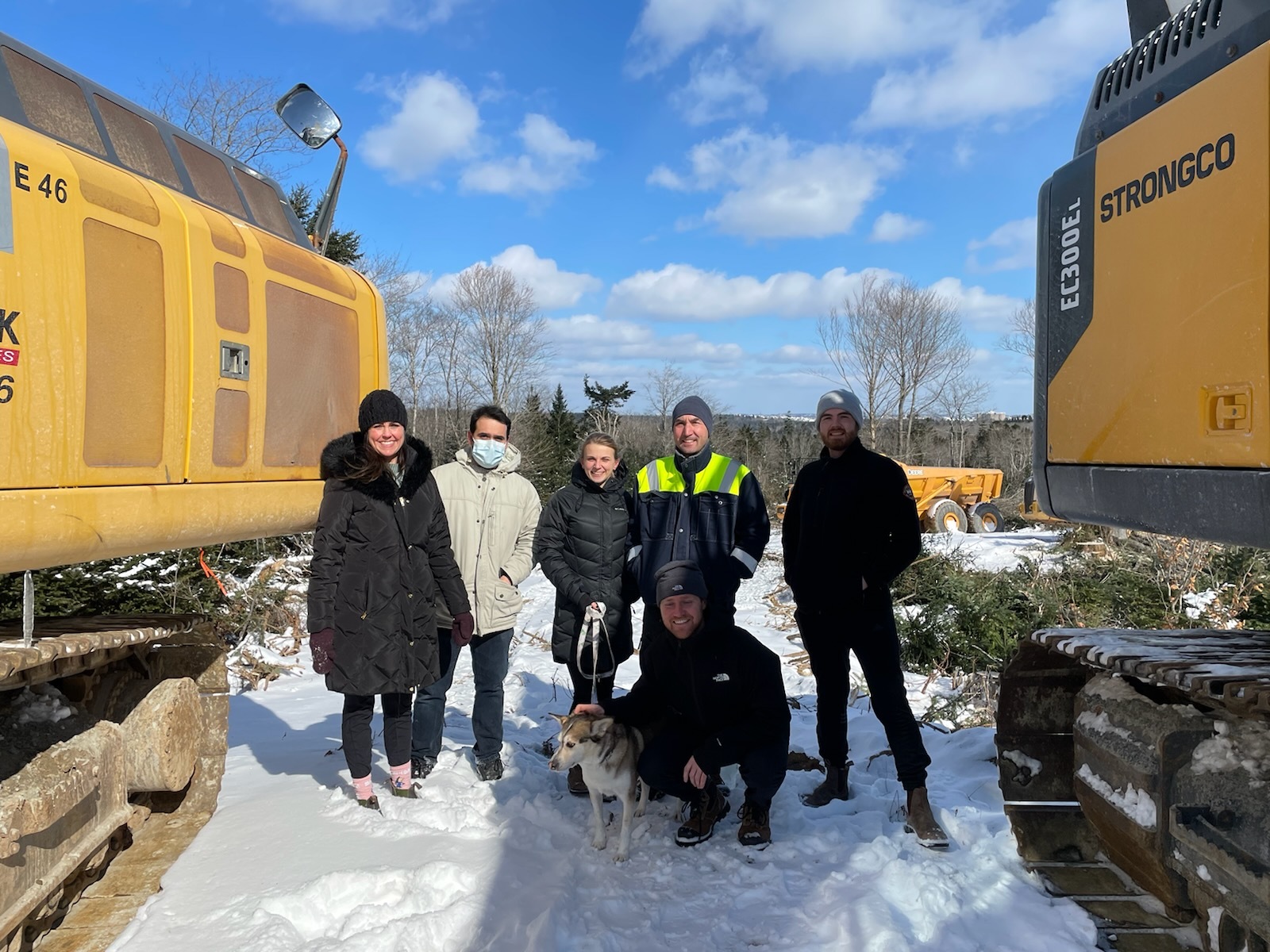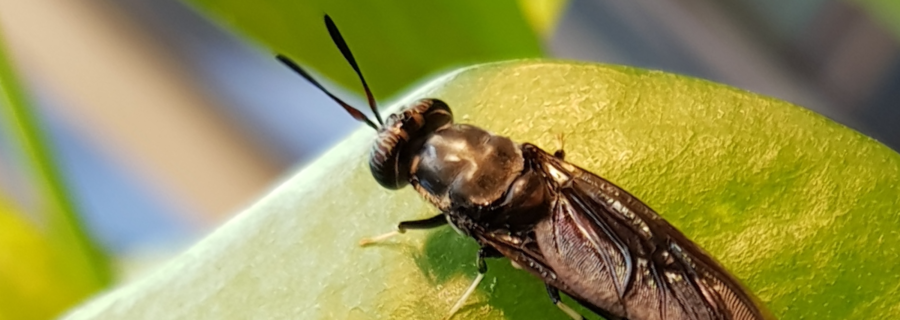Every year, people across the globe acknowledge Earth Day on April 22. It’s a day to draw renewed focus on issues like climate change, clean energy, and environmental protection. While Earth Day is just one day in a year, it serves as a reminder for the urgent action that’s needed. In 2020, Halifax adopted HalifACT: a community response to the climate crisis that voices a commitment to a net-zero community by 2050. While many businesses and organizations across Nova Scotia incorporate sustainability into their daily work, some, like Oberland Agriscience, build sustainability into their core mission in innovative and surprising ways.
Oberland Agriscience is a Halifax-based insect farm. The company grows black soldier fly larvae (BSFL) on an industrial scale using organic by-products, like spent grains from local craft breweries. Oberland works to “close the food loop” by transforming the BSLF into protein for use in pet food, aquaculture, and agriculture feed. In other words: food waste feeds the insects, and the insects become food for other animals.
Generating protein from flies might sound unappetizing, but companies like Oberland are at the forefront of global efforts to reduce waste, foster sustainability in agriculture, and build resilience in food security. “One thing we have hopefully learned through this pandemic is that we need to build resilience into our systems,” says Oberland Agriscience Founder and CEO, Greg Wanger. “By helping local companies deal with their organic by-products and wastes, upcycling them to high quality protein at Oberland, and then helping to feed our aquaculture farms and our pets, Oberland is a link in the chain.”
Closing the “food loop” is at the heart of Oberland’s mission. “A circular economy is an efficient economy,” says Wanger. “Working with local partners both upstream and downstream of us we can help to streamline processes, transport logistics, and minimize wastes and by-products.” In addition to pet food and animal feed, Oberland also co-produces an organic fertilizer. Wanger hopes to see the fertilizer used “in fields and gardens around Nova Scotia and beyond, reducing our need for petroleum-based fertilizers,” he says.
From NASA to Halifax
Wanger was working at the NASA-Jet Propulsion Lab in San Diego, California when his wife accepted a job as a Professor with Dalhousie University. Wanger had been having conversations with a mentor who started a Black Soldier Fly farm in Los Angeles. “We talked about the global protein crisis, food waste issues, and green technologies,” says Wanger. “To me, it seemed like a great opportunity to start a soldier fly operation here in Halifax. Food waste is an issue everywhere, and I wanted to see if we could help the aquaculture industry by supplying some more sustainable feed for their fish.”
Wanger loved being able to transform the conversation into an operation, but the process wasn’t without its challenges — particularly in navigating the business learning curve. “Admitting where my gaps were and finding talented key personnel for those roles has allowed Oberland to grow to where we are today,” says Wanger.

A shared vision
Wanger credits his team for Oberland’s success — but how was it assembled? What leads someone to work at a fly farm? “Our team has grown very organically,” says Wanger. “Roles have mostly been filled by word-of-mouth or through some of the great programs offered here in Nova Scotia, like Careers in Sustainability and Green Youth Programs. Surprisingly often, we get referrals or cold calls from people who have heard about us in the news and social media and want to come work for a bug farm.”
The dedicated team at Oberland Agriscience represent diverse professional backgrounds — from banking, to business, to biology. “We have a very engaged workforce here at Oberland,” says Wanger. “Our diversity is our strength. We all have our talents, and we continue to work hard to cement a culture that gives people that sense of belonging and worth. People should feel good about coming to work.”
Despite their varied backgrounds, the team shares common goals and motivations. “One motivation for our team is that our core values — like environmental stewardship, good governance, and good work-life balance — match their own.”
Expansion at Oberland
Last year, Oberland Agriscience purchased 2.5 hectares in the Ragged Lake Business Park. “It is exciting to see the construction of our new expansion facility taking place across the street,” says Wanger. “This March, we began clearing the land and doing site prep work. Concrete will begin flowing later this spring, with the planned commissioning of the facility in Spring 2023.”
The expansion will increase both their production levels and workforce. “Currently, we are processing about one to two tonnes of organics for our insects per week,” says Wanger. “In our new facility, that number will rise to more than 40 tonnes per day! Our estimates are that we will need to hire another 15-20 personnel for our expansion.”
Sustainability continues to be at the core of Oberland’s business model, and the expansion is no exception. “We are making significant design decisions in our expansion to be one of the most energy efficient and traceable insect farms in Canada,” says Wanger. The facility will be powered by 100% renewable energy, and plans are in place to monitor impact. “We are working with ROCarbon Labs to measure and validate our impact,” says Wanger. “Along with our accountants, Oberland will have a third-party carbon accountant. If it isn't measured, it isn't done!” ν
Learn more about Oberland Agriscience by visiting:
oberlandagriscience.ca
< Back to Articles | Topics: Member Profile

